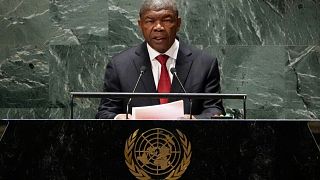Business Africa
As the ninth edition of TICAD approaches, Japan is doubling down on its collaborative investment and innovation agenda across Africa. Tokyo’s development agency, JICA, says the focus will remain on climate resilience, infrastructure, and human capital development—key pressure points as Africa’s youth unemployment crisis deepens and protectionist trade policies threaten global cooperation.
In an exclusive interview, Shuhei Ueno, Deputy Director General of JICA’s Africa Department, shared that Japan has already delivered significant outcomes since TICAD8. Of a pledged $5 billion for private sector investment under the Enhanced Private Sector Assistance initiative (EPSA 6), nearly $2.9 billion has been co-financed with the African Development Bank and JICA. Projects include agriculture financing in Nigeria, infrastructure support in Egypt, and extensive training programs for public officials—over 290,000 trained to date.
Looking ahead to TICAD9, Ueno emphasized that youth employment, digital transformation, and trade integration under the African Continental Free Trade Area (AfCFTA) will headline Japan’s priorities. A standout initiative includes an “AI School” in Kenya, launched in collaboration with local universities, to train Africa’s future tech leaders.
“We want Japanese youth and African youth to work together,” Ueno said. “Africa has the population; Japan has the experience and technology. Together, we can co-create solutions for a better world.”
In an era of rising global trade tensions, TICAD9 also aims to showcase the power of international cooperation. Japan plans to host a multilateral forum with countries like Indonesia, Brazil, and Turkey—alongside AUDA-NEPAD—to explore collaborative models for Africa’s development.
Nigeria’s $21 Billion Diaspora Lifeline
While Japan courts Africa with innovation and aid, ordinary Africans abroad are playing an increasingly vital role in keeping their home economies afloat. In Nigeria, remittances from the diaspora hit $21 billion this year—surpassing both foreign aid and direct investment, according to the Central Bank.
With inflation surging and the naira under intense pressure, millions of Nigerian families are depending on transfers from abroad to cover basic needs such as food, healthcare, and education. Analysts say the trend highlights both the resilience and vulnerability of the Nigerian economy: a safety net powered by migration, but also a sign of stalled domestic opportunity. A report by Kunle Babs .
From Tree to Table: Shea Caterpillars Feed Livelihoods in Burkina Faso
In Burkina Faso, innovation takes a more unconventional form: edible insects. In the city of Bobo-Dioulasso, shea caterpillars—known locally as chitoumou—are not just a seasonal delicacy but a growing street food business. Women entrepreneurs are leading the charge, turning these protein-rich insects into grilled snacks and stews, offering a vital source of income in one of West Africa’s poorest countries.
“They are nutritious, they taste good, and people are buying more every year,” says one street vendor. What began as a survival food is now fueling an emerging industry with cultural and economic significance.





![DRC: Stability on paper, Mining rush in reality? [Business Africa]](https://static.euronews.com/articles/stories/09/36/24/64/320x180_cmsv2_5a5093ce-8cab-5f82-a735-bda26224d43f-9362464.jpg)








Go to video
Ghana cuts interest rates by 3 per cent as inflation eases
01:14
Tanzania bans foreigners from key businesses, risks regional fallout
02:22
Burkina Faso demands justice after influencer Alino Faso dies in Ivorian custody
01:00
Tsunami waves reach Japan and Hawaii after 8.8 quake off Russia
Go to video
Trump may skip G20 summit in South Africa amid rising tensions
Go to video
Floods kill at least 25 people in northeastern Nigeria